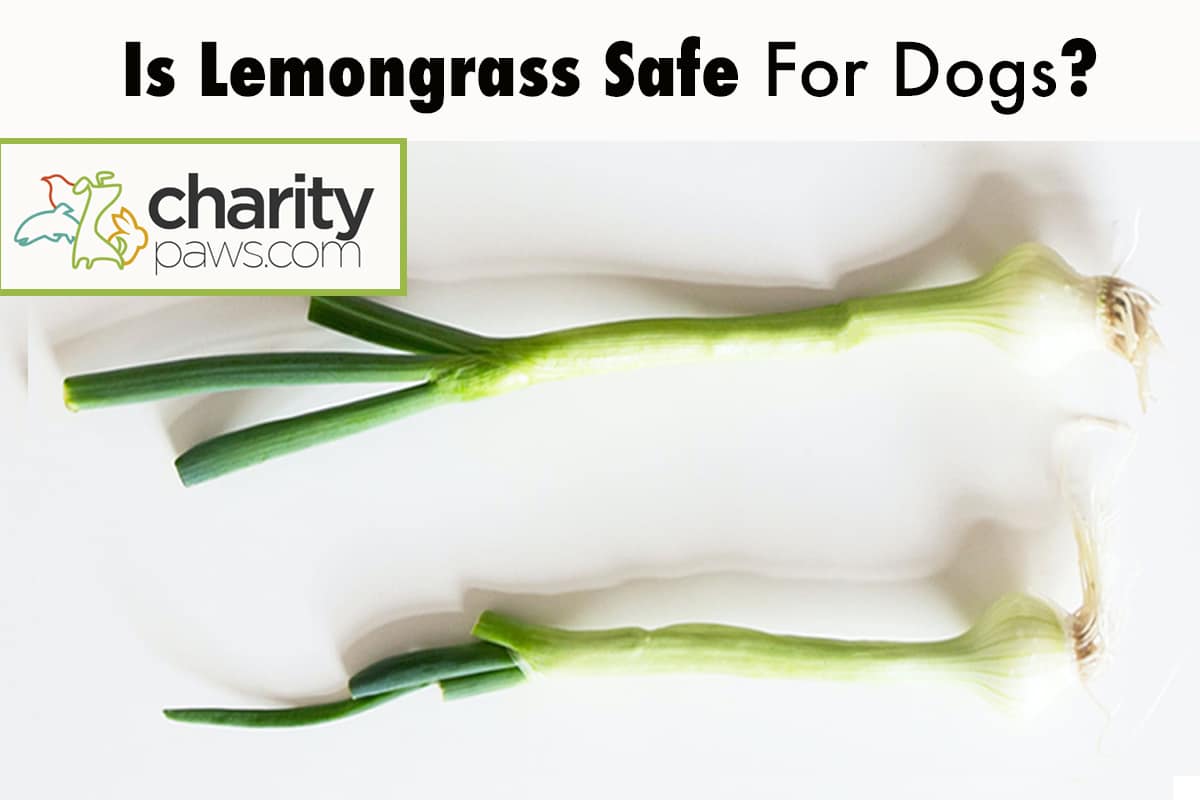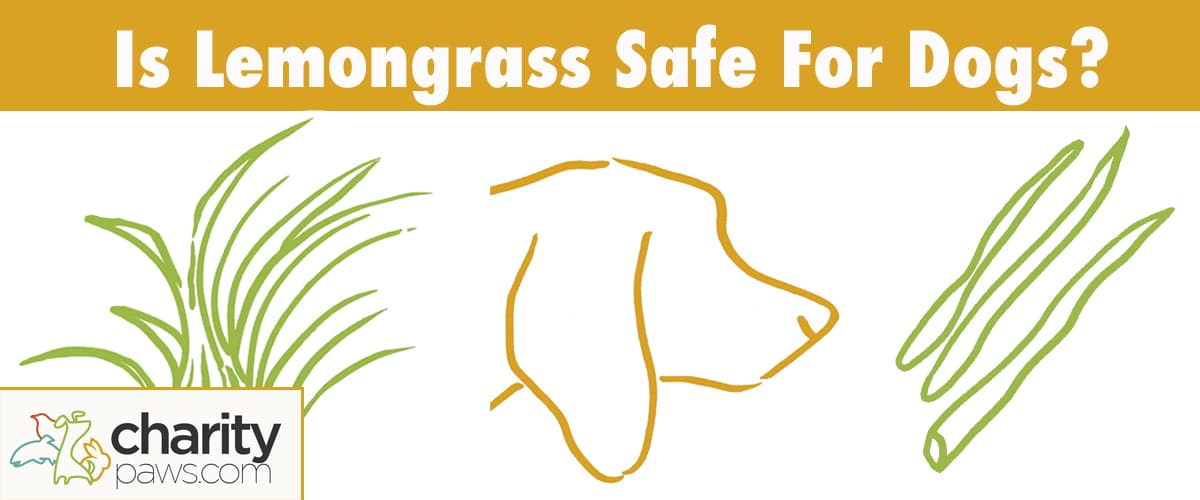When planning your garden, you might be wondering whether certain plants are safe to use around your pets or not.
In this article we will explore lemongrass, a versatile ornamental grass that is used in cooking and aromatherapy, as well as decorating many family yards.
What Is Lemongrass?

Lemongrass plants (Cymbopogon citratus) are also known as oil plants.
They are native plants to Africa, Asia, and Australia, however, they are also found in many domestic gardens.
Lemongrass grows best in warm humid environments that are similar to its environment in the wild.
The plant has gently arching foliage, which can reach 5ft in height.
The stalks are quite fibrous and smell gently of lemons, with the base of the plant being bulb-like in shape.
This plant is a vibrant green color, fast-growing, and helps add texture to many garden designs.
It can also be found for sale in Asian stores, because of its common use in oriental cooking.
What Do People Use Lemongrass For?
As well as adding interest to gardens, lemongrass is used in a variety of dishes, including stir-fries and soups.
The base of the stems is sliced and added to many fish and meat dishes, especially curries.
The leaves of this plant can also be used to make tea. It can be used in both its fresh and dried form.
Lemongrass can also be used as a medicinal herb for a variety of ailments, though extensive studies have not been performed.
The essential oil extracted from lemongrass can be used in perfumes, aromatherapy, and insect repellents.
Is Lemongrass Poisonous To Dogs?

The ASPCA website states that lemongrass is toxic to dogs, as well as cats and horses.
This is due to the essential oils and cyanogenic glycosides the plant contains.
In dogs, any toxic effects of this plant are usually quite mild only causing stomach upsets such as vomiting and diarrhea.
Your dog would probably need to consume a lot of plants to cause toxicity, and as dogs are not naturally herbivorous this rarely occurs.
This is why many gardening websites may refer to lemongrass as being dog-friendly.
As with any plant, if your dog did decide to eat a large amount of foliage, it could cause other issues.
Dogs are not designed to digest large amounts of plant material, so eating excessive volumes of lemongrass could cause a physical blockage in your dog’s digestive tract.
This could require emergency treatment.
Signs of an obstruction include:
- Vomiting
- Diarrhea or constipation
- Abdominal pain
- Lethargy
- Reduced appetite
You must always seek advice from your veterinarian if your dog has eaten a large quantity of lemongrass or seems generally unwell.
If you are worried that your dog is the type to chew and eat your bedding plants, then it is worth looking at a list of plants that are much more toxic than lemongrass.
Eating only a small amount of these could make your dog very sick, and may even be fatal:
- Daffodils – any part of the plant can cause severe gastrointestinal upset, but especially the bulbs, which dogs may dig up and chew
- Tulips – contain high concentrations of glycosides that cause problems such as drooling, vomiting, and difficulty breathing. As with daffodils, the bulbs can contain higher concentrations of these chemicals and can be more harmful
- Primroses – these flowers can cause vomiting, depression, and contact dermatitis
- Foxgloves – there are poisons within this plant than can have serious adverse effects on the heart
- Rhododendrons – all parts of the plant can cause vomiting, depression, and even coma
- Lilies – these can be toxic to dogs, but cats are highly susceptible to them, and coming into contact with lily pollen is enough to be fatal to your feline friends
Try and avoid keeping any of these plants in your garden if your dog is likely to chew them.
Is Lemongrass Oil Bad For Dogs?
Lemongrass essential oil is more toxic to dogs than the actual lemongrass plant.
This is because it is a much more concentrated version, containing higher levels of cyanogenic glycosides.
Cyanogenic glycosides are chemicals that the plant produces as a natural defense mechanism.
As mentioned previously, only mild amounts of this are found in the lemongrass plant so toxicity is uncommon.
However, when the plant has been concentrated down into oil, the amount of these chemicals intensifies.
So, if your dog ingests lemongrass oil, he will be much more likely to show signs of toxicity.
The chemicals contained in the oil are turned into dangerous hydrogen cyanide in the body.
Symptoms of cyanide poisoning include:
- An increased respiratory rate
- An increased heart rate
- Drooling
- Bright red gums
- Muscle tremors or seizures
- Death
Can I Diffuse Lemongrass Oil Around My Dog?
Essential oils are commonly used in aromatherapy as well as to fragrance the home, with lemongrass having a fresh and pleasant lemony smell.
While the scent of your lemongrass oil is unlikely to do your dog any harm, problems arise when your diffuser is left unattended.
If your dog gets hold of a diffuser and ingests the oil it contains then toxicity could occur.
To try and avoid problems from occurring, never leave a diffuser unattended and always store your essential oils out of your pet’s reach, ideally shut in a cupboard or drawer out of sight.
Always use your diffuser in an area that your dog can easily get up and choose to leave, in case he dislikes it.
Final Thoughts On Lemongrass
Lemongrass is mildly toxic to dogs, but only causes problems in dogs that eat a large volume of it.
Problems are more likely to occur when it is consumed in its concentrated essential oil form.
If you suspect your dog has eaten lemongrass oil or a large amount of the plant, then contact your vet right away for advice.
FAQs On Lemongrass
Can dogs eat lemongrass?
Small amounts of lemongrass are unlikely to do too much harm, but if your dog eats a large volume, it could cause tummy upsets or even a blockage in the digestive tract.
Try and discourage your dog from eating garden plants generally though, in case he one day eats a highly poisonous one.
Is lemongrass oil safe for dogs in a diffuser?
The scent of essential oil is unlikely to cause too many problems in your pet.
But you must never leave your diffuser unattended in case your dog accidentally ingests the oil, risking toxicity issues.
Always keep essential oils and diffusers well out of reach of your dog.

